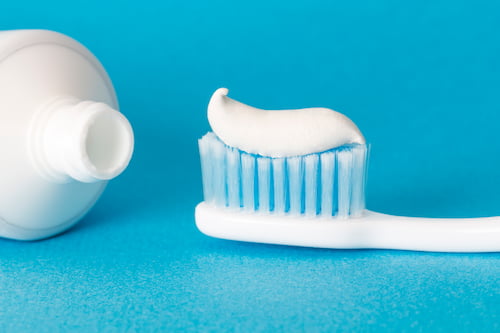
What Is Dentin Hypersensitivity?
A strong layer of enamel covers the visible portion of your teeth, while the roots are protected by cementum, a layer that is not quite as hard as enamel. Both enamel and cementum protect the inner, softer layer of your tooth, which is made up of a material called dentin. Dentin is made up of microscopic tubules that are full of nerve endings. Whenever a tooth’s enamel or cementum does not fully cover the dentin, hot or cold liquids and foods and even cold air can cause nerve irritation (dentin hypersensitivity) that causes a short, sharp pain.
Causes of Sensitive Teeth
There are many reasons why your teeth may be sensitive. It’s not unusual for a cracked tooth, a worn, leaky filling, or tooth decay to be the source of sensitivity and pain. Highly acidic foods and drinks can cause erosion of your tooth enamel or the enamel may be worn away due to abrasion from aggressive brushing or grinding of teeth. Receding gums are often the culprit. Whether due to gum disease or brushing with a hard toothbrush, exposed roots and cementum can cause temperature sensitivity. If you have a sensitivity to hot and cold temperatures for more than three or four days, you should see your dentist for an evaluation of the problem.
Occasionally, you may notice tooth sensitivity after dental treatments such as fillings, crown preparations, bleaching, and even professional cleanings. This is usually temporary, but let your dentist know if it continues. You may also find that your teeth become sensitive when using a tartar control or whitening toothpaste. If you think this is the case, talk to your dentist or dental hygienist about the best toothpaste to use.
Toothpaste for Sensitive Teeth
Your dentist will want to diagnose and treat the underlying cause of your sensitivity. If the dentist does not see an obvious reason for your pain, then the situation may call for treatment of the sensitive area with topical fluoride and use of a desensitizing toothpaste for a period. These kinds of toothpaste contain ingredients that block off the nerve-enriched tubules in the exposed dentin. This protects the dentin and keeps you from feeling pain when eating and drinking. These kinds of toothpaste should be used on a regular basis for at least one month to get the maximum benefit. Your dentist may also advise you to massage some of the paste onto the sensitive areas after brushing.
If ice cream hasn’t been on your menu because of tooth sensitivity, don’t wait. Get to your dentist, and let dental professionals determine the source of the problem. Desensitizing toothpaste might do the trick and allow you to head back to the ice cream parlor.
